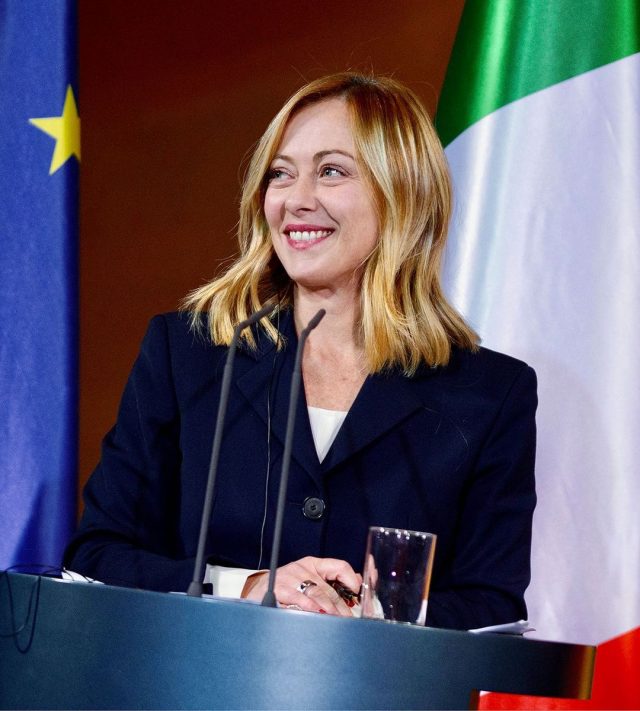
Giorgia Meloni, Ursula von der Leyen and Marine Le Pen: the role of the three key women of Europe
The British weekly The Economist recently dedicated its cover to three prominent female figures in the European political scene: Giorgia Meloni, Ursula von der Leyen and Marine Le Pen. The image, which portrays the Italian Prime Minister in the centre, flanked by the President of the European Commission and the leader of the Rassemblement National, reflects the complexity and diversity of contemporary European political dynamics.
Ursula von der Leyen: The rational conservative
The Economist expresses a clear endorsement for Ursula von der Leyen, hoping for her second mandate as president of the European Commission. The newspaper praises her work, describing her as a “rational German conservative” who was able to lead the European Union in a crucial period. Von der Leyen has decisively managed the EU’s collective response to Russian aggression in Ukraine, promoting deeper European cooperation on key issues such as common debt.
Giorgia Meloni: A pragmatic leader
Giorgia Meloni is described as a growing figure in the European political landscape, with a growing harmony with Ursula von der Leyen. Despite some criticism of her “many policies and unsavoury characteristics”, Meloni is recognized for her pragmatic leadership. Her firm stance on illegal immigration and her support for Ukraine distinguish her from other members of Europe’s populist right.
Marine Le Pen: The threat of populism
In contrast, Marine Le Pen is presented as a controversial figure, whose potential rise to the French presidency still poses a threat to Europe. Her xenophobic positions and ties with Moscow are a cause for concern for The Economist, which sees her hypothetical alliance with Meloni as a scenario to avoid.
The dilemma of populism
The central theme of the article is the dilemma of populism in Europe, with the rise of Eurosceptic movements threatening the stability and cohesion of the continent. The Economist identifies two main dangers for Europe: Vladimir Putin’s Russia, with the war in Ukraine and suspected cyber intrusions, and the possible return to the United States presidency of Donald Trump. In this context, the newspaper claims that a close collaboration between von der Leyen and Meloni could be decisive in countering such threats.
Giorgia Meloni’s key role
The possibility of an alliance between von der Leyen and Meloni is seen as a strategic move to ensure the stability of the EU. The Economist suggests that, to prevent Meloni from moving further closer to Le Pen, it is essential to involve her in a broad coalition in Brussels. Meloni, with her pragmatic leadership, could in fact prove to be a valuable ally to support the post-election EU executive.
The Economist article offers an in-depth analysis of European political dynamics, highlighting the crucial role that Meloni, von der Leyen and Le Pen will play in shaping Europe’s future. While von der Leyen is promoted for her work and vision, Meloni is seen as a pragmatic figure who could contribute to EU stability if involved in the European political mainstream. In contrast, Le Pen is considered a threat, with her potential rise posing a risk to the cohesion and security of the continent.
In summary, the article highlights the need for a united and cohesive Europe, capable of facing the challenges of populism and external threats. Collaboration between pragmatic leaders like von der Leyen and Meloni could be the key to ensuring a stable and prosperous future for the European Union. The presence of three female figures as a leadership reference for all of Europe remains indicative and it is essential to emphasize their management skills in the never-ending fight against gender differences in every field of global society.
Alessandro Fiorentino



 Subscribe
Subscribe